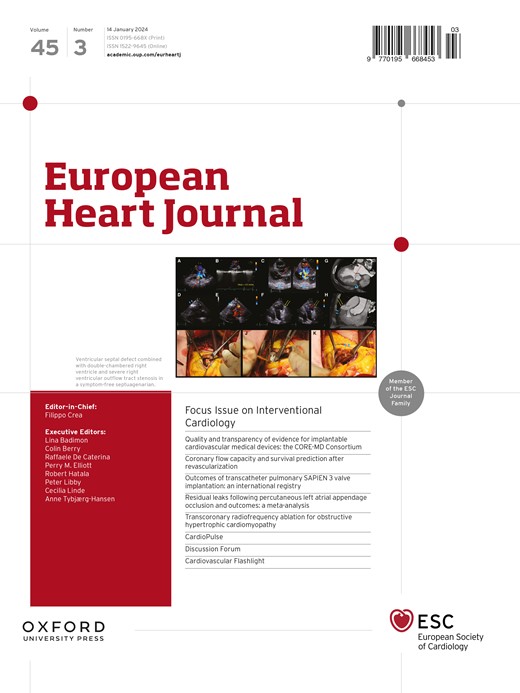社会经济剥夺:心血管疾病指南实施的障碍
IF 35.6
1区 医学
Q1 CARDIAC & CARDIOVASCULAR SYSTEMS
引用次数: 0
摘要
实施指南推荐的护理与改善心血管疾病患者的临床结果相关。文献充分表明,社会经济地位较低的人患心血管疾病的负担较高,死亡率也较高。在这篇最新的综述中,概述了社会经济剥夺与指南实施的关系,表明在一系列环境、国家和临床情况下,社会经济地位较低的人因提供指南推荐的护理而进一步处于不利地位。减少心血管健康不平等和改善人口教育应成为各国政府的优先事项。建议通过解决可改变的护理障碍,更多地关注指南指示的护理的提供。总的来说,建议优先使用宣传、劳动力、更广泛的政策反应、数据、随机临床试验重新设计、质量指标和风险评分,以减少生活在社会经济剥夺中的人的健康不平等。重新将重点放在提供指南推荐的高质量心血管护理上,有可能减少医疗保健不平等现象,并改善社会经济最贫困人群的临床结果。本文章由计算机程序翻译,如有差异,请以英文原文为准。
Socioeconomic deprivation: barriers to guideline implementation for cardiovascular disease.
The implementation of guideline-recommended care is associated with improved clinical outcomes for patients with cardiovascular disease. It is well documented that people living in low socioeconomic position have a high burden of cardiovascular disease and higher mortality rates. In this state-of-the-art review, the association of socioeconomic deprivation and guideline implementation is outlined, showing that across a range of settings, countries and clinical scenarios people with low socioeconomic position are further disadvantaged by sub-optimal provision of guideline recommended care. Reducing cardiovascular health inequality and improving population education should be priorities for governments. Greater attention to the provision of guideline-indicated care is recommended by tackling modifiable barriers to care. Broadly, the prioritization of use of advocacy, workforce, broader policy responses, data, randomized clinical trial re-design, quality indicators, and risk scores are recommended to reduce health inequalities for those who live in socioeconomic deprivation. A renewed focus on the provision of high-quality guideline-recommended cardiovascular care has the potential to reduce healthcare inequalities as well as improve clinical outcomes amongst our most socioeconomically deprived populations.
求助全文
通过发布文献求助,成功后即可免费获取论文全文。
去求助
来源期刊

European Heart Journal
医学-心血管系统
CiteScore
39.30
自引率
6.90%
发文量
3942
审稿时长
1 months
期刊介绍:
The European Heart Journal is a renowned international journal that focuses on cardiovascular medicine. It is published weekly and is the official journal of the European Society of Cardiology. This peer-reviewed journal is committed to publishing high-quality clinical and scientific material pertaining to all aspects of cardiovascular medicine. It covers a diverse range of topics including research findings, technical evaluations, and reviews. Moreover, the journal serves as a platform for the exchange of information and discussions on various aspects of cardiovascular medicine, including educational matters.
In addition to original papers on cardiovascular medicine and surgery, the European Heart Journal also presents reviews, clinical perspectives, ESC Guidelines, and editorial articles that highlight recent advancements in cardiology. Additionally, the journal actively encourages readers to share their thoughts and opinions through correspondence.
 求助内容:
求助内容: 应助结果提醒方式:
应助结果提醒方式:


